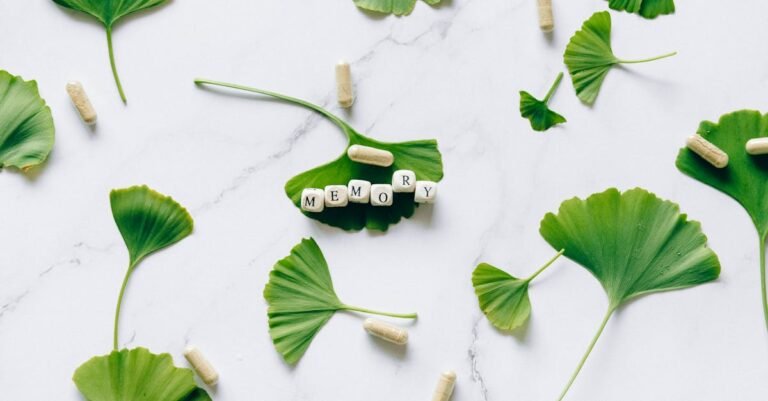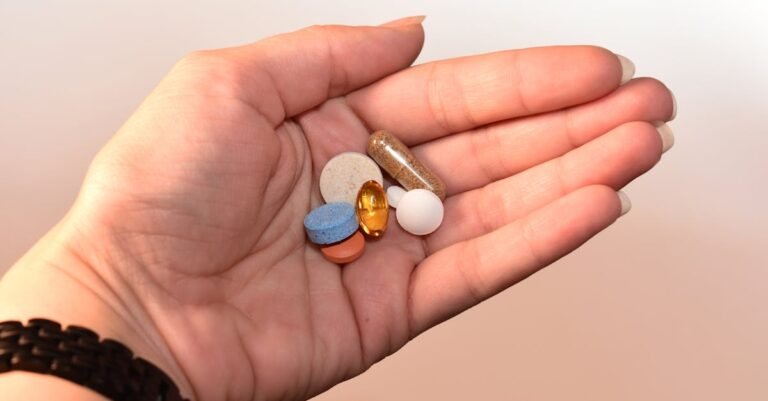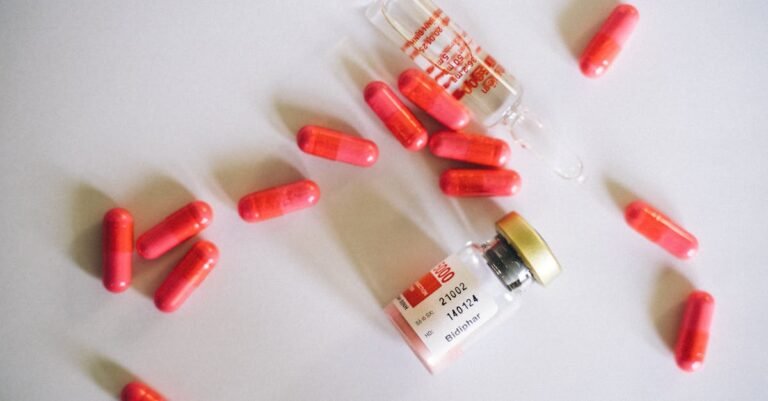Table of Contents
- Best Holy Basil Supplements for Stress Relief: Finding Your Calm
- What Exactly is Holy Basil (Tulsi) Anyway?
- How Does Holy Basil Help Kick Stress to the Curb?
- Choosing the Right Holy Basil Supplement: What to Look For
- What Makes a *Good* Holy Basil Supplement Stand Out?
- How to Use Holy Basil Supplements Effectively
- Beyond Supplements: Weaving Holy Basil into Your Life
- Conclusion: Embracing the Queen of Herbs for Peace of Mind
- Frequently Asked Questions (FAQs)
Best Holy Basil Supplements for Stress Relief: Finding Your Calm
Feeling like you’re constantly juggling flaming torches while walking a tightrope? Yeah, modern life can feel a lot like that sometimes. Stress seems to be the unwelcome guest that overstays its welcome. We try deep breathing, yoga, maybe even screaming into a pillow (no judgment here!). But what if there was a natural ally, a plant revered for centuries, that could help take the edge off? Enter Holy Basil, also known as Tulsi. It’s not just your average garden herb; it’s a powerhouse adaptogen that might just be the key to finding a little more calm in the chaos. But with so many supplements on the market, how do you choose the best one? Let’s dive in and figure it out together.
What Exactly is Holy Basil (Tulsi) Anyway?
First things first, let’s clear something up. Holy Basil (Ocimum tenuiflorum or Ocimum sanctum) isn’t the same basil you sprinkle generously on your pizza or pasta. While they’re related, Holy Basil holds a special place in traditional medicine, particularly Ayurveda, India’s ancient system of healing. It’s often called “Tulsi,” meaning “the incomparable one,” and is revered as the “Queen of Herbs.” Think of it as the superstar cousin of culinary basil.
A Quick History: More Than Just a Herb
For thousands of years, Tulsi hasn’t just been used medicinally; it’s been cherished spiritually. In Hinduism, it’s considered a sacred plant, often grown in homes and temples for its purifying properties and connection to the divine. It was believed to promote longevity, well being, and spiritual enlightenment. So, when we talk about Holy Basil for stress, we’re tapping into millennia of traditional use and reverence. It wasn’t just about physical ailments; it was about nurturing the mind and spirit too.
The Science Bit: Adaptogens Explained Simply
Okay, “adaptogen.” It sounds fancy, but the concept is pretty cool. Imagine your body has an internal thermostat for stress. When stress hits – whether it’s a looming deadline, traffic jams, or relationship woes – that thermostat can go haywire. Adaptogens are like natural substances (mostly herbs) that help your body *adapt* to stress and bring that thermostat back to a balanced state, or homeostasis. They don’t just numb you; they help your body become more resilient to stressors, both physical and mental. Holy Basil is one of the most well regarded adaptogens out there. It doesn’t work like a sedative, knocking you out. Instead, it helps your body manage the stress response more effectively, so you feel less frazzled and more balanced.
How Does Holy Basil Help Kick Stress to the Curb?
So, how does this “incomparable” herb actually work its magic on stress? It’s not just one thing; Holy Basil fights stress on multiple fronts. Think of it as a multi talented stress busting ninja.
Cortisol Crusader: Balancing the Stress Hormone
You’ve probably heard of cortisol, often dubbed the “stress hormone.” When you’re stressed, your adrenal glands pump out cortisol. A little bit is fine – it helps with the ‘fight or flight’ response. But chronic stress means chronic cortisol elevation, which can lead to anxiety, sleep problems, weight gain, and generally feeling rundown. Studies suggest Holy Basil can help modulate cortisol levels. It doesn’t just slash them, but it helps bring them back into a healthier range, preventing those prolonged stress hormone spikes that wear you down. It’s like telling your internal alarm system, “Okay, crisis averted, you can stand down now.”
Neurotransmitter Nurturer: Supporting Brain Chemistry
Your brain relies on chemical messengers called neurotransmitters (like serotonin and dopamine) to regulate mood, focus, and feelings of well being. Chronic stress can throw these delicate chemical balances out of whack. Research indicates that compounds in Holy Basil may positively influence these neurotransmitter systems. By supporting healthier brain chemistry, it can contribute to improved mood, reduced anxiety, and enhanced cognitive function – even when you’re under pressure. It’s like giving your brain’s communication network a helpful tune up.
Antioxidant Powerhouse: Fighting Oxidative Stress
Stress isn’t just a mental state; it has physical consequences. One of these is increased oxidative stress – an imbalance between damaging free radicals and the antioxidants that neutralize them. Think of it like rust forming inside your body. This oxidative stress can damage cells and contribute to inflammation and various health issues. Holy Basil is packed with antioxidants, like eugenol, rosmarinic acid, and apigenin, which help neutralize these free radicals. By reducing oxidative stress, Holy Basil protects your body at a cellular level, bolstering your overall resilience.
Choosing the Right Holy Basil Supplement: What to Look For
Alright, you’re convinced Holy Basil might be worth a try. But walking into a health store or browsing online reveals a dizzying array of options. How do you pick a winner? It’s not just about grabbing the first bottle you see. Let’s break down the key factors.
Type of Holy Basil: Rama, Krishna, or Vana? Does it Matter?
You might see different types of Holy Basil mentioned:
- Rama Tulsi (Ocimum sanctum): Green leaves, slightly cooling, clove like aroma. Often considered the most common type.
- Krishna Tulsi (Ocimum sanctum): Purple leaves and stems, slightly more pungent or peppery.
- Vana Tulsi (Ocimum gratissimum): Wild forest basil, green leaves, lemony aroma, slightly different chemical profile but still adaptogenic.
While all types offer benefits, some traditional texts associate specific types with slightly different properties. Krishna Tulsi is sometimes considered particularly potent. Many supplements use a blend of Rama and Krishna for a balanced profile. Vana is also effective. Honestly, for general stress relief, focusing on overall quality is probably more important than getting hung up on one specific type, though blends are often a good bet.
Extraction Method Matters: CO2 vs. Alcohol vs. Water
How the beneficial compounds are pulled out of the plant material significantly impacts the final product.
- Supercritical CO2 Extraction: This method uses carbon dioxide under high pressure. It’s great for preserving a broad spectrum of compounds, including delicate volatile oils, without using harsh solvents. Often considered a premium method.
- Alcohol Extraction (Tinctures): Alcohol is effective at extracting many beneficial compounds, both water soluble and oil soluble. Tinctures are fast acting as they’re absorbed quickly.
- Water Extraction (Teas, some powders): This mainly pulls out water soluble compounds. While beneficial (think Holy Basil tea!), it might not capture the full spectrum of compounds found in CO2 or alcohol extracts.
For a potent, full spectrum supplement (like capsules or potent tinctures), look for CO2 or dual alcohol/water extractions. This ensures you’re getting a wider range of the plant’s goodness.
Potency and Dosage: Finding Your Sweet Spot
This is where things can get tricky. You’ll see dosages listed in milligrams (mg), but potency matters more. A 500mg capsule of plain dried leaf powder isn’t the same as 500mg of a concentrated extract. Look for supplements that specify the extract ratio (e.g., 10:1, meaning 10 parts herb were used to make 1 part extract) or, even better, standardize the amount of key active compounds.
Understanding Key Active Compounds (Like Ursolic Acid)
Some high quality supplements will guarantee a certain percentage of key active compounds believed to contribute significantly to Holy Basil’s effects. These might include:
- Ursolic Acid: Often highlighted for its adaptogenic and anti inflammatory properties.
- Oleanolic Acid: Similar benefits to ursolic acid.
- Eugenol: Also found in cloves, known for its antioxidant and analgesic effects.
- Rosmarinic Acid: A potent antioxidant and anti inflammatory agent.
Seeing standardization for compounds like ursolic acid (often around 2% or higher) can be a good indicator of a potent and consistent product. Dosage typically ranges from 300mg to 2000mg of extract per day, often split into two doses. It’s always best to start low and see how you feel, gradually increasing if needed, and ideally consulting with a healthcare provider.
Third Party Testing and Certifications: Trust but Verify
The supplement industry isn’t always tightly regulated. How do you know what’s actually in the bottle matches the label? Look for brands that invest in third party testing. This means an independent lab has verified the product’s potency, purity, and checked for contaminants like heavy metals, pesticides, or microbes. Certifications like USDA Organic or Non GMO Project Verified add another layer of trust, ensuring the herb was grown without synthetic pesticides or genetically modified organisms.
Form Factor Fun: Capsules, Tinctures, Teas, or Powders?
Holy Basil comes in various forms, each with pros and cons:
- Capsules/Tablets: Convenient, tasteless, offer precise dosing. Often contain concentrated extracts. Great for on the go.
- Tinctures (Liquid Extracts): Absorbed quickly under the tongue. Easy to adjust dosage. Can have a strong herbal taste. Usually alcohol based, but glycerin based options exist.
- Teas: Pleasant ritual, hydrating, offers mild effects. Great for gentle support but less potent than extracts for significant stress. Ensure it’s pure Tulsi or a blend you trust.
- Powders: Can be added to smoothies or drinks. Offers flexibility in dosing but can be messy and taste is a factor. Can be dried leaf or extract powder.
The “best” form depends on your lifestyle and preference. For targeted stress relief, capsules or tinctures containing potent extracts are often the most effective.
What Makes a *Good* Holy Basil Supplement Stand Out?
Instead of naming specific brands (which can change and isn’t my role), let’s focus on the hallmarks of a truly high quality Holy Basil supplement. What should you be looking for that separates the great from the just okay?
Spotlight on Quality Markers: Beyond the Label
A top tier supplement usually checks these boxes:
- Transparency: The brand is open about where their Holy Basil comes from (sourcing) and how it’s processed (extraction method).
- Potency Standardization: It clearly states the extract concentration or the percentage of key active compounds like ursolic acid.
- Clean Ingredients: Minimal fillers, binders, or artificial additives. Look for organic or wildcrafted herbs whenever possible.
- Third Party Testing: Proof of testing for potency and purity is readily available (sometimes on their website or via QR code).
- Reputation and Reviews: While not foolproof, consistently positive reviews from verified purchasers and a good brand reputation can be indicators of quality and efficacy.
- Appropriate Form: The form (capsule, tincture) uses an effective extraction method (like CO2 or dual extraction) suitable for delivering the key compounds.
Essentially, you’re looking for a company that prioritizes quality from seed to shelf and is transparent about its processes.
How to Use Holy Basil Supplements Effectively
So you’ve picked a promising supplement. Now what? Just popping a pill now and then probably won’t cut it. Like any natural approach, getting the best results requires a little strategy.
Consistency is Your Best Friend
Adaptogens like Holy Basil work best when taken consistently over time. They aren’t like painkillers that provide immediate, dramatic relief. Instead, they gently help your body build resilience. Aim to take your supplement daily, as recommended on the product label or by your healthcare provider. It might take a few weeks to notice the full benefits, like feeling generally calmer, sleeping better, or handling stressful situations with more ease. Patience and consistency are key!
Potential Side Effects and Who Should Be Cautious
Holy Basil is generally considered very safe for most people. However, some individuals might experience mild side effects, especially when first starting:
- Mild nausea or digestive upset (try taking it with food)
- Possible blood thinning effect (caution if on blood thinners like warfarin)
- Potential impact on blood sugar (monitor closely if diabetic)
- May affect fertility (some animal studies suggest this; avoid if pregnant, breastfeeding, or trying to conceive, just to be safe).
Always talk to your doctor before starting any new supplement, especially if you have underlying health conditions, are pregnant or breastfeeding, or are taking other medications. They can help you determine if Holy Basil is appropriate for you and advise on potential interactions.
Beyond Supplements: Weaving Holy Basil into Your Life
While supplements offer a concentrated dose, don’t forget other ways to enjoy Tulsi! Brewing a cup of Holy Basil tea can be a wonderfully calming ritual in itself. The warmth, the aroma, the gentle act of sipping – it’s stress relief multi tasking! You can find Tulsi tea bags readily available, often blended with other calming herbs like chamomile or mint. Growing a Tulsi plant at home (if your climate allows) can also be rewarding, connecting you to its traditional roots and providing fresh leaves for tea.
Conclusion: Embracing the Queen of Herbs for Peace of Mind
Navigating the world of supplements can feel overwhelming, but finding the right Holy Basil product doesn’t have to be stressful – kind of ironic, right? By understanding what makes Holy Basil work (hello, adaptogens and cortisol balance!), knowing what to look for in a quality supplement (think extraction, standardization, testing), and using it consistently, you can harness the ancient wisdom of the “Queen of Herbs.” It’s not a magic bullet, but Holy Basil can be a powerful, natural ally in your quest for calm, helping your body adapt to the inevitable stresses of life and cultivate a greater sense of peace and resilience. Why not give this revered herb a chance to help you find your calm?
Frequently Asked Questions (FAQs)
1. How long does it take for Holy Basil supplements to work for stress?
It varies, but most people start noticing subtle benefits within 2 to 4 weeks of consistent daily use. Adaptogens work gradually to help your body build resilience, so don’t expect overnight results. Maximum benefits are often seen after a couple of months.
2. Can I take Holy Basil every day? Is it safe for long term use?
Yes, Holy Basil is generally considered safe for daily, long term use for most adults. Many people take it continuously to manage chronic stress. However, as mentioned, it’s wise to consult your doctor, especially for prolonged use or if you have health conditions.
3. What’s the difference between Holy Basil extract and Holy Basil powder?
Holy Basil powder is typically just dried, ground leaves. An extract is much more concentrated, using solvents (like CO2, alcohol, or water) to pull out higher levels of the active beneficial compounds. Extracts are generally more potent than simple powders for targeted effects like stress relief.
4. Can Holy Basil make you sleepy? Should I take it at night?
Holy Basil isn’t typically sedative like valerian root. It helps balance stress hormones, which can indirectly improve sleep quality if stress is keeping you up. However, it can be taken morning or night. Some prefer the morning to help manage daytime stress, while others find it calming before bed. Experiment to see what works best for you.
5. Are there any supplements I shouldn’t take with Holy Basil?
Be cautious if you’re taking blood thinning medications (like warfarin), as Holy Basil might have a mild blood thinning effect. Also, monitor blood sugar levels closely if you take diabetes medication. Always discuss potential interactions with your doctor or pharmacist before combining supplements or taking them with prescription drugs.










